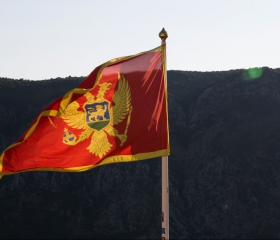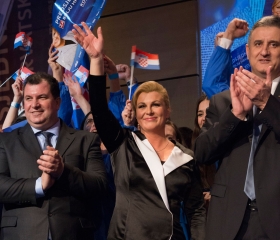The border dispute arbitration between Croatia and Slovenia over the Piran Bay was unexpectedly thrown into doubt following revelations that the Slovenian representative broke the impartiality rule. On 22 July, Croatian daily Vecernji List circulated the transcript of tapped phone conversations between Jernej Secolec, the Tribunal’s Slovenian judge, and Simona Drenik, a Ljubljana official, that took place in November 2014 and January 2015. The communication consisted of information sharing and action coordination. Notably, Secolec revealed that the arbitration ruling would be in Slovenia’s advantage with at least two thirds of the disputed waters granted to Ljubljana.
The border dispute arbitration between Croatia and Slovenia over the Piran Bay was unexpectedly thrown into doubt following revelations that the Slovenian representative broke the impartiality rule. On 22 July, Croatian daily Vecernji List circulated the transcript of tapped phone conversations between Jernej Secolec, the Tribunal’s Slovenian judge, and Simona Drenik, a Ljubljana official, that took place in November 2014 and January 2015. The communication consisted of information sharing and action coordination. Notably, Secolec revealed that the arbitration ruling would be in Slovenia’s advantage with at least two thirds of the disputed waters granted to Ljubljana.
Both Secolec and Drenik resigned shortly after being exposed whilst the Slovenian government announced that it had no prior knowledge of their communication. Although the authenticity of the tapped conversations has not been officially confirmed, the resignations were logically widely interpreted as an indication that media reports had been accurate.
On 29 July, following the announcement of Prime Minister Zoran Milanović that the arbitration procedure has been “contaminated”, Sabor, the Croatian parliament, voted in favour of the country's withdrawal from the dispute resolution process with its neighbour. On the other hand, Slovenia demonstrated its determination to resolve the territorial quarrel at the existing Tribunal, which is “deemed the only legal basis for a settlement by the Slovenian leadership. No matter the outcome of this recent Balkan conundrum, the Arbitral Tribunal’s legitimacy has been irreversibly harmed and the resolution of the Piran Bay dispute seems less achievable than ever. The implications of the scandal, that was dubbed “Pirangate”, may transcend the bilateral realm and could serve as a valuable lesson for the European Union and for all states aspiring to EU accession.
Pahor-Kosor Agreement
The dispute over the coastal and maritime border in the Piran Bay has been a source of contention between Croatia and Slovenia since the disintegration of former Yugoslavia. The two countries share a coastline of which Slovenia has only 46 km, whereas Croatia has 1,700 km under its jurisdiction. Therefore, to settle the dispute Croatia proposes to share the coastline equally as a compromise. However, such division would leave Slovenia with virtually no access to international waters. Ljubljana thus demands a substantially larger share of the land with adjacent waters.
The two Balkan states had come close to a settlement in 2001 with the Drnovsek-Racan Agreement. However, Croatia then withdrew its support. In 2009 former Slovenian and Croatian prime ministers Borut Pahor and Jadranka Kosor signed an agreement to begin an international border arbitration under the Permanent Court of Arbitration (PCA) auspices and with the mediation of the European Union in order to reach a binding agreement with no right to appeal. The agreement stipulated the establishment of the Arbitral Tribunal that would consist of three international judges in addition to one Slovene and one Croat judge. However, the deal was far from a gesture of good faith. Indeed, Slovenia, already an EU member at the time, practically “blackmailed” its neighbour into the arbitration agreement after having blocked Croatia’s EU membership negotiations for more than a year. Reaching the deal allowed Croatia to join the EU in 2013.
Arbitration at risk
The backdrop to the scandal suggests that Croatia’s reaction is influenced by a combination of factors other than simple loss of confidence in the Tribunal. Firstly, the fact that Zagreb agreed to arbitration only under substantial and enduring pressure from Ljubljana suggests that with no EU membership at stake it would likely have not voluntarily agreed to the legal procedure. Now that Croatia is an EU member, Slovenia has lesser leverage over its neighbour to force its compliance. Secondly, the leaked conversation was not the first communication implying that the arbitration would have an unfavourable outcome for Zagreb. Earlier this year Slovenia’s Foreign Minister Karl Erjavec announced that according to unofficial information the Tribunal’s decision would be in favour of Ljubljana. Therefore, the scandal could have served as a convenient excuse for Croatia to make its way out of this calamitous arbitration. In fact, the incumbent government has a strong incentive to avoid a disadvantageous ruling that would be announced in mid-December, as it could affect the performance of the governing coalition in the upcoming parliamentary elections scheduled for February 2016.
As it stands, three scenarios could unfold in the aftermath of the Pirangate scandal and they all bear a negative outlook for the dispute settlement. Firstly, the arbitration process could continue with or without Croatia’s participation. Indeed, after Zagreb pulled out its representative, according to Article 2 of the Arbitration Agreement, the President of the Tribunal is entitled to appoint a judge without Zagreb’s participation. Therefore, technically the arbitration proceeding is likely to resume. However, Croatia could reject the ruling of the Tribunal as illegitimate, which will hamper its enforcement.
Secondly, if Zagreb returns to the Tribunal and the final ruling is in favour of Ljubljana, it will likely rule out the decision, claiming that the arbitration was indeed rigged. On the other hand, a ruling in favour of Croatia could be interpreted in Slovenia as a political concession made to please Zagreb amid the scandal. Therefore, any decision could potentially be deemed illegitimate by one or the other side.
Thirdly, although further pressure by Ljubljana and Brussels will likely prevent Zagreb’s complete withdrawal from the arbitration, the process could be suspended for an uncertain period. In fact, there are speculations in the media over diplomatic mechanisms at Slovenia’s disposal that could be employed to bring Croatia back to the negotiating table, for instance, its entry in the Schengen area and in the Eurozone. Additionally, the EU has repeatedly urged Croatia to resume the arbitration process.
However, the suspension of the process would bring uncertainty, harming economic interests of the states. For instance, American-Austrian Maraton Oil and OMV withheld oil and gas explorations on the Croatian seashore. The protraction of the dispute could not only shatter the investment climate in both countries, but could also have a detrimental effect on numerous areas of Croatia-Slovenia bilateral cooperation such as trade, social and cultural interactions.
A lesson to be learnt
While observers await the closure of the Pirangate scandal, the recent events and the ensuing potential scenarios highlight the EU’s structural deficiencies and yield valuable conclusions. Firstly, in case of the Slovenia-Croatia Arbitration Agreement, Ljubljana used its status of an EU member to attain its national ambitions. Similarly, Greece has put on hold EU accession negotiation with Macedonia for almost four years due to a dispute over its name. Therefore, the veto power of member states is a loophole for projecting national policy over non-members aspiring to accession. Croatia itself disputes over borders with its Balkan neighbours, Serbia, Montenegro and Bosnia and Herzegovina (BiH), all candidates for the EU membership (BiH – potential candidate). As it stands, Zagreb could later use its veto power against these countries, as Slovenia did, in order to settle territorial disputes to its advantage.
Secondly, Brussels has been incapable of facilitating the resolution of the dispute both before Croatia’s accession and after. The EU enlargement commissioner Olli Rehn had previously complained that the European Commission unsuccessfully tried to help Zagreb and Ljubljana solve their dispute, adding: “it is up to Croatia and Slovenia to find a solution.” This demonstrates the EU’s lack of resolve in dealing with bilateral conflicts within and without the European bloc. In the current dispute, despite being the mediator, the EU has been repeatedly subsided by Croatian officials. For instance, the government spokesperson in Zagreb Nikola Jelic argued that the European Commission was not competent to make a judgment, as the arbitration is a bilateral issue between two equal EU member states.
Finally, the Treaty on the Accession of Croatia to the EU does not oblige Zagreb to execute the ruling of the Tribunal. Therefore, the document contains loopholes that at the end of the day render a year of intense diplomacy and charged bureaucracy meaningless.
The Pirangate scandal has thus highlighted the structural inadequacies of the EU procedures that to the greatest extent account for Croatia’s walk out of the Arbitral Tribunal. No matter the outcome, it will now be exceptionally hard to reach a dispute settlement that would satisfy both Zagreb and Ljubljana.






